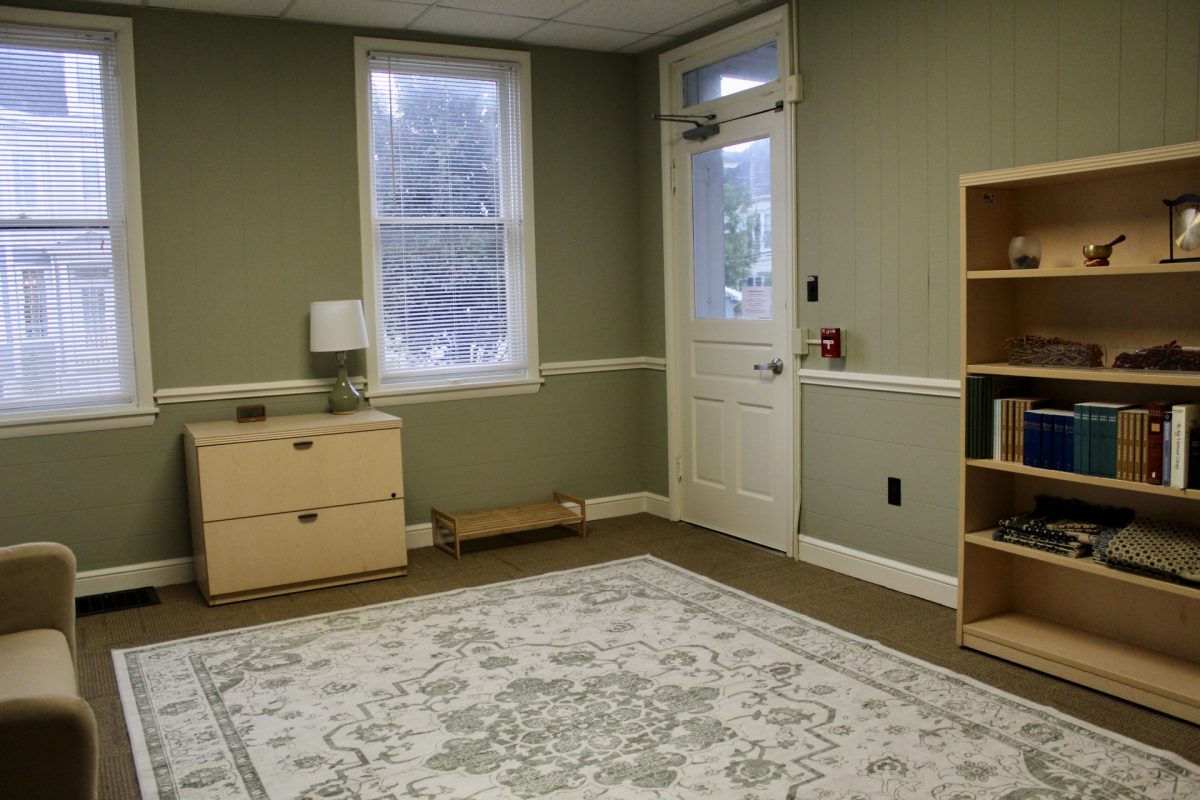From her homeland in Buurhakaba, Somalia to Dickinson College in Carlisle, Kaltum Hassan has overcome many challenges. Her family, who are members of a minority ethnic group, fled the country in 1994 due to escalating violence.
Hassan is middle-aged, has children, and she often wipes down tables or serves food in the dining hall. She is tall and wears an array of colorful hijabs.
The ongoing violence in Somalia both separated Hassan’s family and prevented her from continuing her education. “I wanted to go to university, but during my last year of high school, the war started, and I needed to survive life,” she said. Hassan and her siblings were forced to leave the rest of their family and flee the country.
After years of living in Yemen and Saudi Arabia, Hassan and her husband immigrated to the U.S. in August of 1999. Hassan lived in Maryland, Minnesota and West Virginia before settling in Chester County, Pennsylvania. She worked in the dining hall of a school there.
In 2020, when Hassan’s husband was hired by Shippensburg University, her family moved to Carlisle. To continue to interact with students, she pursued a job at Dickinson’s dining hall. When asked about her life in the U.S., Hassan noted that people are respectful and help her when she needs it.
In December 2023, 29 years after she fled her country, Hassan and her family, members of the Shiikhaal Jaziira tribe of the Bandiri, reunited in Somalia to be together and see her elderly father. Hassan explained, “I did not enjoy time with my family because of the war, but now I can.”
Hassan said that there is less violence and hunger in Somalia than when she left. However, conflicts between clans, the government and insurgent groups continue.
When Hassan returned to the U.S. in January, she learned her niece was targeted and burned by her father’s rivals in Somalia. After being in the hospital for days, Hassan said her niece passed away from her injuries. Hassan’s mother passed away in 2022. She was unable to say goodbye or attend her funeral.
No one would fault Hassan if she were bitter due to the death and destruction which uprooted her life and continues to plague her country. However, Hassan insists that there is “At least a little bit of good in everybody.”
She believes that the students of Dickinson appreciate her work in the dining hall and noted that they often thank her and greet her off campus. Hassan said the environment at Dickinson is supportive and that dining services hire people who speak limited English to help them adjust to the community. Out of respect for employee privacy, dining services and Human Resources declined to provide demographic information on the immigrants who work in the dining hall and their job responsibilities.
Hassan explained that growing up, people told her Ethiopians hated Somalians because the countries were at war with one another.
However, when Hassan went to Ethiopia, the people helped her. After meeting an Ethiopian woman in the U.S. who needed help, Hassan returned the favor.
“Politics are what divide us, not our differences,” said Hassan. Humans, it does not matter what their religion is, want peace. If the Earth had more peace, there would be no hate.”
Hassan’s message to the world is to “Treat others the way you want to be treated.”



